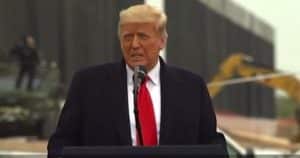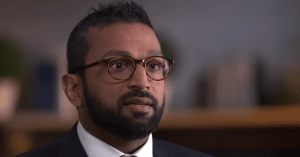Meta Lifts Additional Controls on Trump's Social Media Ahead of Election
Meta has decided to remove special restrictions from former President Donald Trump's social media accounts on Instagram and Facebook, signaling a significant policy shift as the 2024 election nears.
With the 2024 election on the horizon, the move in Trump's favor is intended to ensure fairness and equal treatment among presidential candidates, as Axios reports.
Since January 2023, Trump has been under a unique set of rules compared to other users of Meta platforms, which include the possibility of suspensions and advertising restrictions for even minor policy infractions.
Understanding Meta's Special Penalties for Trump
These special measures were originally put in place during periods of heightened civil unrest, specifically targeting Trump, the only public figure to have such restrictions applied to his accounts. Throughout these penalties, Trump's accounts did not trigger any of these severe penalties, as they did not breach Meta's community guidelines.
The lifting of these restrictions stems from concerns that minor violations could disproportionately impact Trump’s campaign activities as he vies for the presidency again.
Meta's Ongoing Oversight and Policy Adjustment
Meta still retains the power to reduce the visibility of posts that might indirectly reference extremist groups or violate its guidelines subtly, without explicitly breaking the rules. All public figures, including Trump, are still subject to the same standard content policies that apply to all users on Meta's platforms.
In light of recent events, including the unprecedented attack on the U.S. Capitol on January 6, 2021, Meta along with other social media platforms had barred Trump, leading him to create his own platform, Truth Social.
Comparative Social Media Strategies and Campaign Activity
Twitter, now under the ownership of Elon Musk and renamed as X, reinstated Trump's account in late 2022. However, Trump has scarcely used it, likely due to his ongoing commitment to his network, Truth Social.
Although less active on Facebook compared to previous campaigns, Trump’s team continues to leverage the platform for advertising purposes. Despite these changes, Trump remains banned from Snapchat, marking a consistent exclusion from some areas of the social media landscape.
Broader Implications of Meta's Policy Evolution
Meta and other tech giants have been revisiting policies implemented during unusual times, which include rolling back rules aimed at mitigating COVID-19 misinformation and safeguarding election integrity.
Looking ahead, Meta has announced plans to periodically review any restrictions it imposes on user accounts. This approach will be guided by its independent Oversight Board, ensuring that such measures are kept in check and are justified.
Nick Clegg, Meta’s president of global affairs, stated, "In assessing our responsibility to allow political expression, we believe that the American people should be able to hear from the nominees for president on the same basis."
Clegg further explained that the decision was influenced by the unique and extraordinary circumstances of the past and that these specific penalties have not had to be deployed due to the non-violation of policies by Trump's accounts.
Final Considerations and Future Outlook
As election day approaches, the landscape of social media policy and political expression continues to evolve. Meta’s decision to roll back special restrictions on Trump’s accounts may set a precedent for how social media giants handle political figures moving forward. This change reflects a broader trend of revising or removing policies that were originally crafted in response to specific crises or periods of uncertainty.
In conclusion, while Trump's social media strategy shifts and adapts, the overarching principles of fairness and consistency in platform policy enforcement remain critical to the discourse around election integrity and free speech.




